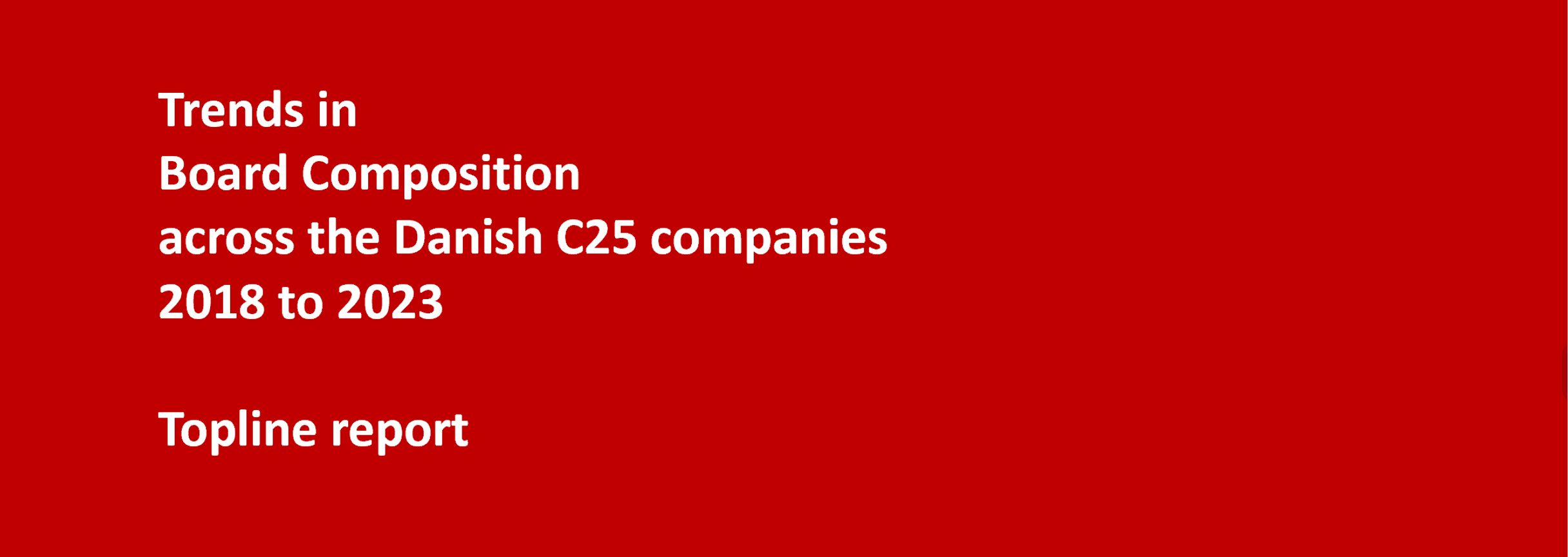
Danish boards still primarily seek individuals who have had P&L responsibilities, such as CEO or CFO, and who possess external board experience. Nonetheless, the percentage of non-Danish members continues to increase, and the percentage of female members remains relatively high.
Leadership Advisor Group has conducted in-depth desk research to track the details of the boards of the Danish C25 since 2018, and this report compares the findings from 2018 and 2023 (based on review of publicly-available data as well as approximately 165 CVs).
The research covers these key diversity dimensions:
- Type of experience of the board members (Finance, CEO, Strategy, HR, etc)
- Breadth of experience types on the board (e.g., avoiding a concentration of people with mainly Finance backgrounds or similar)
- Nationality (% Danish vs non-Danish)
- Age
- Gender
- Size of the board (number of board members)
- Tenure of the board members
The main findings are these:
- The most represented experiences among C25 board members are still (other) external board experience (67%) and CEO / MD experience (55%), which shows that Danish boards still primarily seek members who have had P&L responsibilities and who have attained several years of external board experience as shareholder-elected board members.
- The most significant change from 2018 is that boards today have a smaller % of board members with international experience (i.e., non-executives who have lived in a country other than their origin). Counteracting this, however, is that the % of non-Danes on the boards has increased by 10 points to 55%, meaning that over half of all current board members are not Danish.
- Moreover, female representation has risen from 27% to 39%.
- Interestingly, there are seven experience areas with continued low representation (below 8%) on C25 boards: HR & Organization, Law & Regulation, Strategy, IT, Public / State Experience, Production / Supply Chain, and R&D / Innovation. The boards seem nearly universal in not valuing these areas for board recruitment.
- The question could be raised whether boards still recruit in a very traditional way, looking for experiences that current members believe will be important based on their specialty/experiences.
In terms of the other findings:
- The average age of board members has not changed significantly (still around 60 years old).
- Board size is still, on average, about 7 NEDs (same as in 2018).
- As for tenure, the average is still 5 years.
To receive the full analysis (available for clients only), please contact reception@leadershipadvisorgroup.com.

Interested in self-evaluation? Try Online Board Evaluations
Well-aligned with national corporate and foundation/charity governance codes, our board clients usually conduct an external board evaluation every three years. However, most national governance codes recommend that boards perform a self-evaluation in the years between external board evaluations. Therefore, we have developed OnlineBoardEvaluations.com, a tool enabling boards to self-evaluate effectively and effortlessly every year.
Quarterly articles and research
We write research and articles of advice on a regular basis. Subscribe to get your summary directly to your inbox every quarter – no strings attached.
